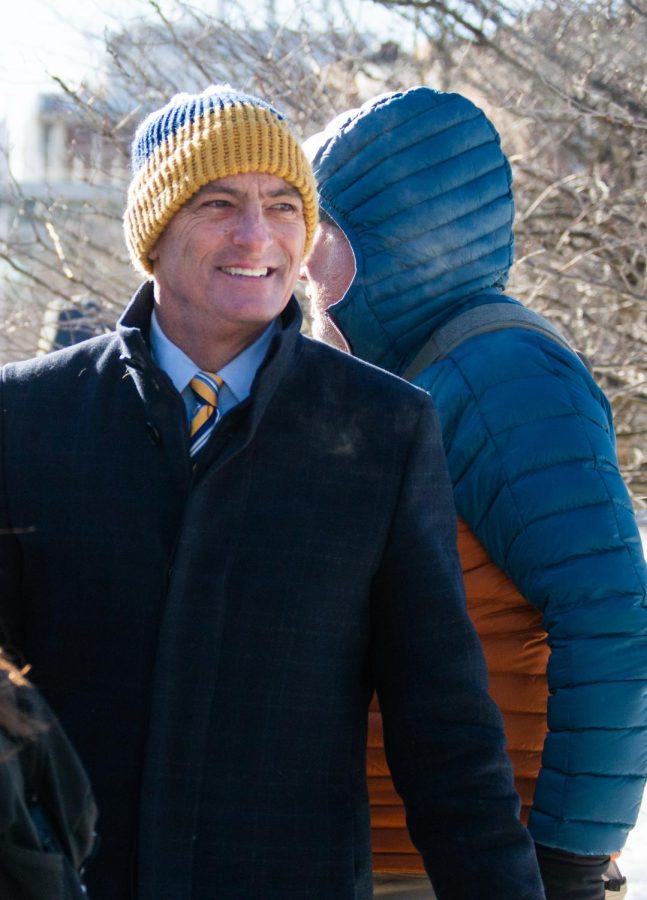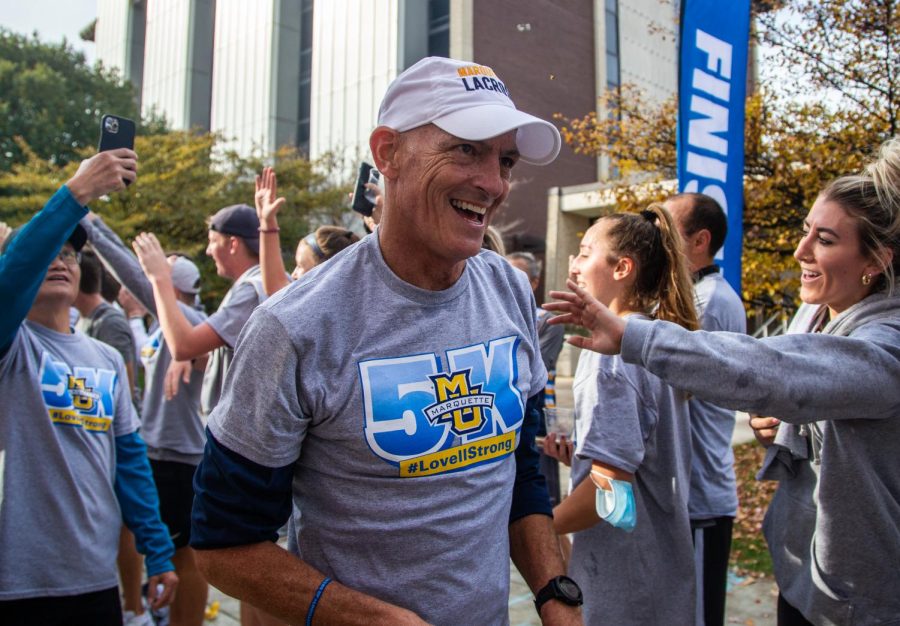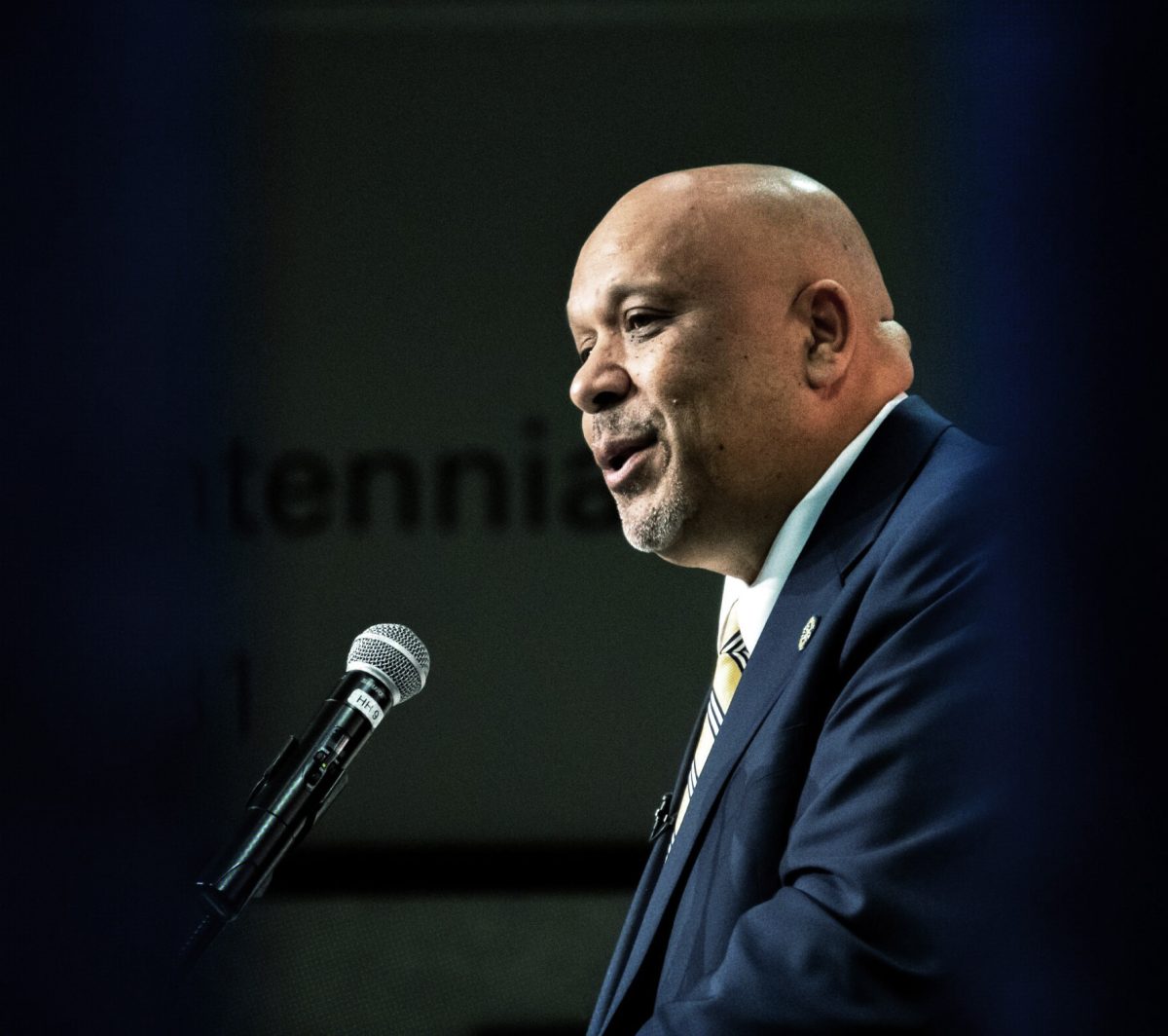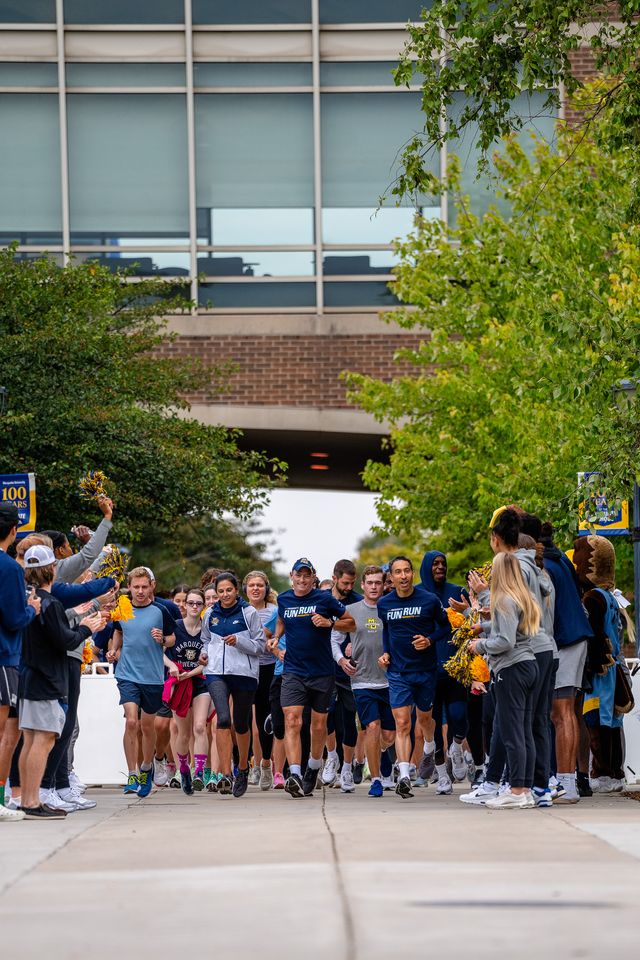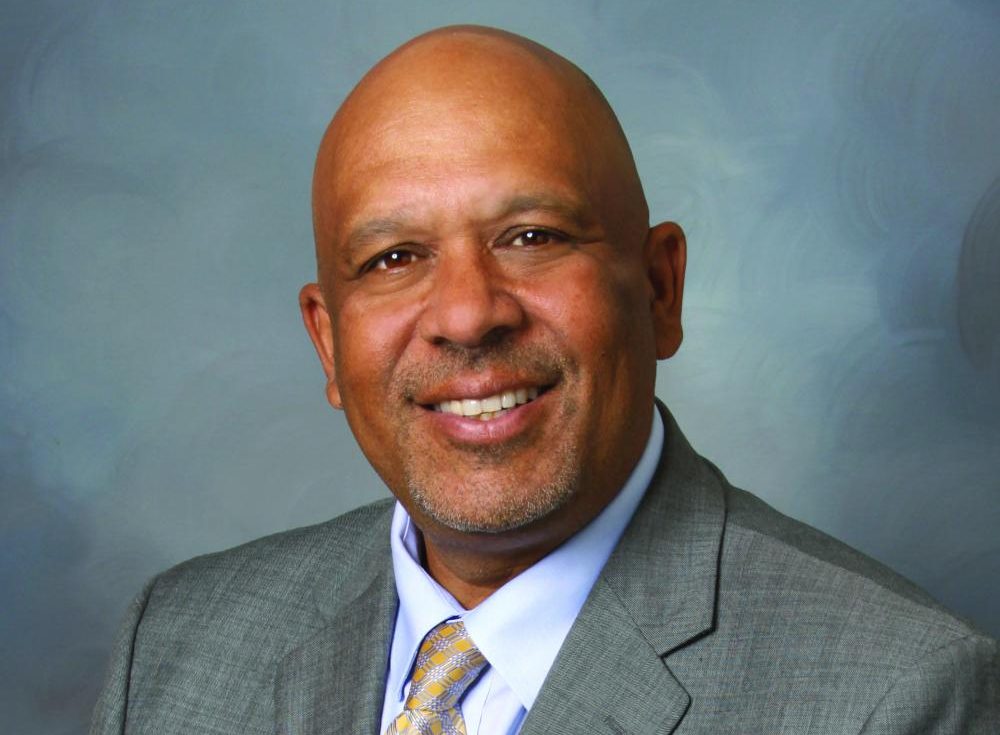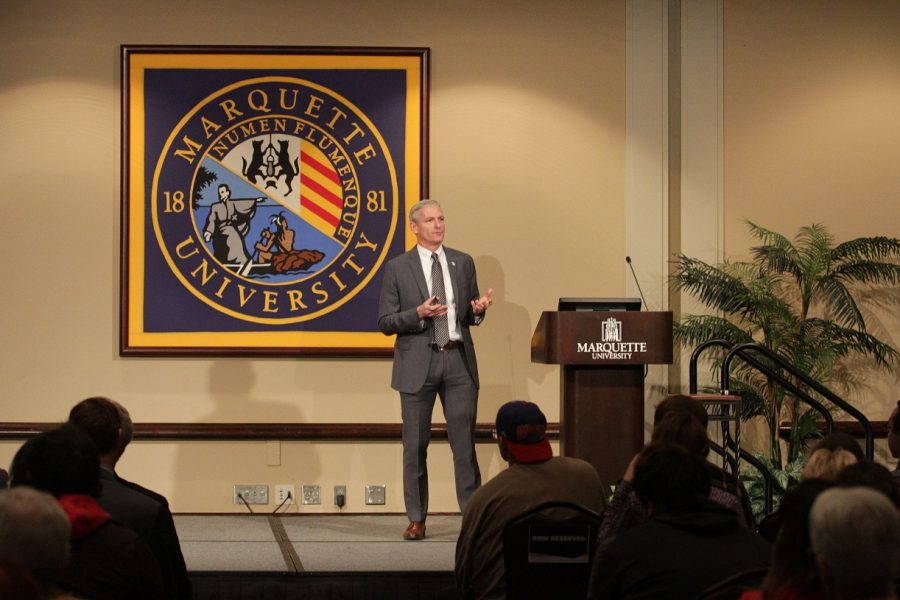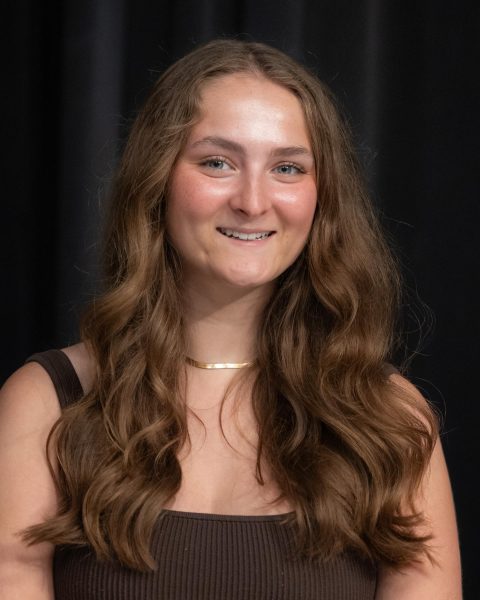After nearly a year and a half of battling sarcoma, a rare form of cancer, University President Michael Lovell recently finished immunotherapy in September and is currently going in for scans every three months.
“The treatment was actually a little harder on me than I expected,” Lovell said. “The first few weeks [of the fall semester] I was pretty weak and immunocompromised.”
Lovell’s doctors noticed a small place where his cancer was active again in September when at the time he was going in for scans, but not doing anything to actively fight the cancer after finishing chemotherapy last year.
“I can compartmentalize pretty good, but then a couple days before and you start getting anxious,” Lovell said. “Before you go into the scan, you mentally prepare yourself for the worst because you have to … you want it to be good news, but you must mentally prepare yourself for, ‘Okay I might have to have another type of therapy.'”
When Lovell heard the news that his cancer cells were active again, he was presented with a choice between doing chemotherapy again or testing a new clinical trial.
Lovell received “t-cell transfer therapy,” a form of immunotherapy where your immune cells are extracted. Those cells are then grown in a lab between two to eight weeks and then are injected back into your body through a needle into your vein.
T-cell therapy can also be called adoptive cell therapy, adoptive immunotherapy or immune cell therapy.
“My feeling is, this [t-cell therapy] is the future of cancer treatments and it’s only a matter of time before it gets approved,” Lovell said.
Lovell said his response to this therapy was successful, but it also meant that he had suffered side effects from it which the doctors then had to compensate for how bad he felt.
“I remember talking to the doctors and they said, ‘well you can get this side effect but it’s not that common, you can get this side effect but it’s [also] not that common — I got all but one of the side effects,” Lovell said.
The only side effect that Lovell said he didn’t get from the immunotherapy was temporary dementia. Other possible side effects from the therapy include fever, nausea, headache, rash, rapid heartbeat, low blood pressure and trouble breathing.
“My immune system was almost taken down to zero,” Lovell said.
In October, Lovell said he started to feel better and could do nearly everything that he wanted to do again while still being a bit careful.
Lovell said since October, he can feel himself getting healthier and stronger each week and said he feels 100% right now.
“I exercise every day so I know my body is getting stronger, getting better — in fact, I had a milestone a couple weeks ago,” Lovell said.
Todd Smith, the strength and conditioning coach, helps Lovell train and Lovell said he is doing more repetitions compared to where he was prior to his cancer treatment.
One of Lovell’s favorite milestones though, is being able to stay a part of the campus community. Lovell said he gets his energy from the Marquette community.
Being immunocompromised, especially at the beginning of the 2022-2023 academic year, Lovell said there were times when he couldn’t attend the events he wanted to. Provost Ah Yun said he stepped up to help take Lovell’s place at some events and meetings.
Ah Yun said Lovell is “a fighter in all ways.”
“You know, when you walk through something like this with someone else, I think there’s no way for you not to become relationally closer because you have to be open and vulnerable and willing to talk about what’s happening and how you’re feeling and how you can support that other person,” Ah Yun said.
Ah Yun said that Lovell’s journey with sarcoma allowed him the opportunity to tell him how much he meant to him, how Lovell helped him grow as a person and how much he respects Lovell as a person.
“A lot of times in our life, we might not have that moment to pause and think about these important people in your life, and you might not have a reason to have that conversation with them because it doesn’t naturally come up,” Ah Yun said. “It [cancer] provided us moments to have those punctuated points in time that not only was it appropriate, but important to have those conversations.”
This story was written by Julia Abuzzahab. She can be reached at julianna.abuzzahab@marquette.edu


